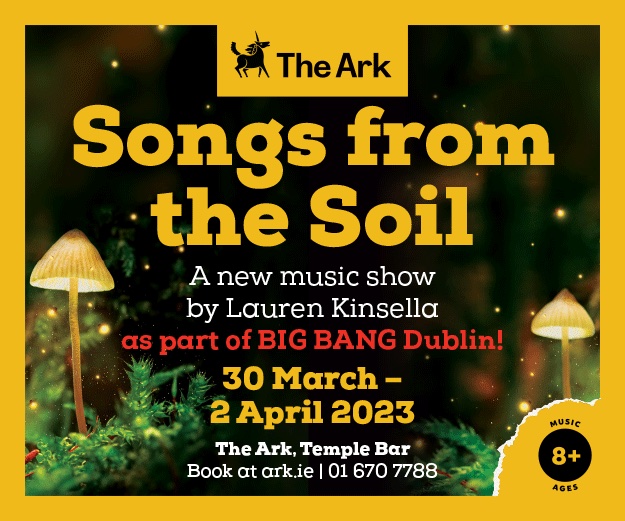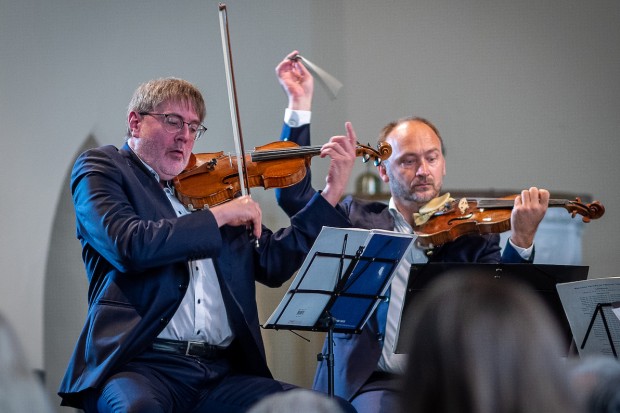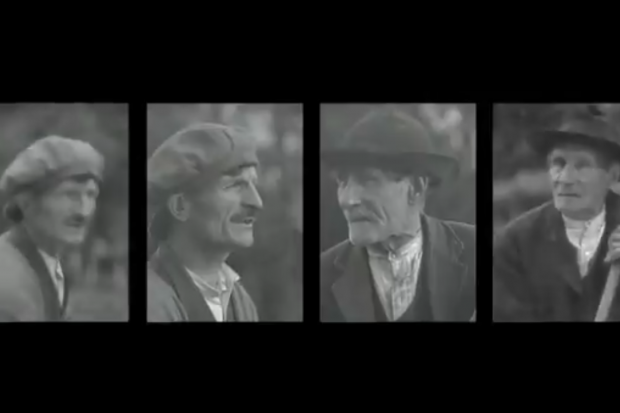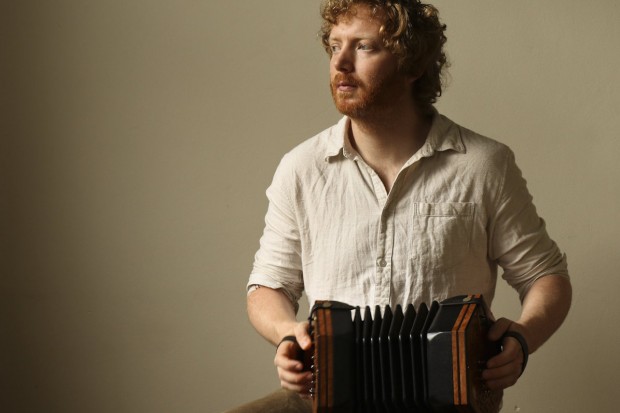
Lankum (Photo: Sorcha Frances Ryder)
A Soundworld that has Become Deeper and Richer
From the outset, with Radie Peat’s unaccompanied cry ‘go dig my grave’, False Lankum unmistakably intends for you to stop what you’re doing and listen to what it has to say. It is hard to resist, and if Peat’s voice, which sounds like it calls from an enveloping mist, were not arresting enough, she is soon joined by electric guitar chords that sound like funeral bells – the start of an accompaniment which grows over the nine minutes of the song to become a keening that is simultaneously transfixing and diabolical. Peat is joined by bandmates Cormac Mac Diarmada and Daragh and Ian Lynch, but it sounds like there must be more than four mortals playing.
If you have not heard Lankum before, it is a revelation. But False Lankum, their fourth studio album, is a refinement of their sound more than it is anything radically new. Since Cold Old Fire, their 2014 debut, they have been developing a unique musical voice marked by patient tempi and heavy use of thick, atmospheric drones. ‘What Will We Do When We Have No Money?’ and ‘The Wild Rover’ (the openers of Between the Earth and the Sky (2017), and The Livelong Day (2019), respectively) have a similarly portentous character.
Originally this sound was only part of Lankum: early albums also included knees-ups such as ‘Daffodil Mulligan’ and bitter political interventions such as ‘Déanta in Éireann’. In The Livelong Day, Lankum’s first record with Rough Trade, they began to focus on the tonal darkness of their sound, and the easy comedy of the earlier albums, as well as the light-hearted too-ra-loos of ‘Sergeant William Bailey’, were left far behind. False Lankum continues this trajectory: their version of Cyril Tawney’s ‘On a Monday Morning’, originally a (mostly) playful grumble about hangovers, is stripped of its humour, becoming the deathly cold lament of an alcoholic. There is no doubting that Lankum are masters of this palette; the question is whether False Lankum will continue to develop their sound and to imbue it with purpose, or whether they will merely settle in it, creating of it just one more folk genre.
Expanded palette
Lankum avoid complacency; their breakthrough is how their soundworld has become deeper and richer. Their earlier albums, though inspired by electronic and metal music, were almost exclusively rendered on the band’s own acoustic instruments, especially harmonium, concertina, uilleann pipes, fiddle and acoustic guitars. One of the early achievements of Lankum’s sound has been how they have used this restricted palette – along with, since Between the Earth and the Sky, John ‘Spud’ Murphy’s superb production, recording and mixing – to create enormous, other-worldly landscapes. In False Lankum, the band’s palette has expanded in ways that were only intimated in The Livelong Day. It now includes instruments such as bowed piano, theremin and dulcimer; even more intriguingly, the band now freely uses electronics.
These new ingredients are used to astonishing effect. They are powerful enough to stop you in your tracks, as in ‘Go Dig My Grave’, but the sound also rewards close attention: it does not arrest you by force but by its carefully painted and balanced soundscapes. Other moments in the album are just as adventurous. On ‘Master Crowley’s’, Cormac Begley joins the band on a bass concertina that is processed down an octave and joined by what sound like bowed cymbals (among other strange sounds); ‘The New York Trader’ uses synth choirs to create sounds the height of storm clouds in which Daragh Lynch’s singing, for all its power, is almost lost; and then there are the three ‘Fugues’, short interludes of colour without melody or tonality, but absolutely vivid. The music still sounds distinctively Lankum, and continues to have a solid foundation in Irish traditional music’s approach to timbre: Lankum’s instruments and voices form the backbone of the sound that informs the character of all the new sounds. Their ability to expand themselves to sensitively encompass these new ingredients demonstrates the confidence and maturity of their musicianship.
A complete piece
False Lankum is also a much more coherent album than anything the band has done before. Like The Livelong Day before it, it has shed explicitly comedic and political songs – but it surpasses that album: the harmonies, melodies and lyrics form a more compelling whole; the balance of the tracks and of the album as a whole is more finely tuned. Indeed, the band has spoken of their desire to create ‘a complete piece’ marked by a dramatic contrast between light and dark. They have achieved this. Be warned, though, that the ‘lightness’ of the album is rarely the lightness of weightlessness: more often it’s the blinding light of a beating sun, no easier to deal with than the album’s doom-laden darkness. Even the reels are heavy, their energy one of demonic compulsion. The only moment of sonic respite is the intimate ‘Lord Abore and Mary Flynn’, but even this is a murder ballad, and even its superficially simple and conservative scoring (Mac Diarmada, Peat and a guitar), expands substantially (if low in the mix) as it progresses.
False Lankum is not just its experimental soundscapes, though. In many respects it is very familiar. Apart from the ‘Fugue’ interludes and two new songs by Daragh Lynch, all of the tracks are folk ballads; and at the centre of the grand soundscapes are the individual and authentic voices of the quartet. Indeed, for all that False Lankum’s epic, bewitching sounds, sustained over the course of long songs of intense emotion, are hard to resist falling in love with, this individuality and authenticity is the deeper success of the album: when Lankum sing and play, whether it is Peat on her own or the full band keening amidst an orchestra of synths, they bring the whole of their own selves to it.
False Lankum is released on Rough Trade and is available on CD, 2xLP vinyl and limited edition orange vinyl. Visit https://bit.ly/42Hida5.
Subscribe to our newsletter.
Published on 27 March 2023
James Camien McGuiggan studied music in Maynooth University and has a PhD in the philosophy of art from the University of Southampton. He is currently an independent scholar.

















